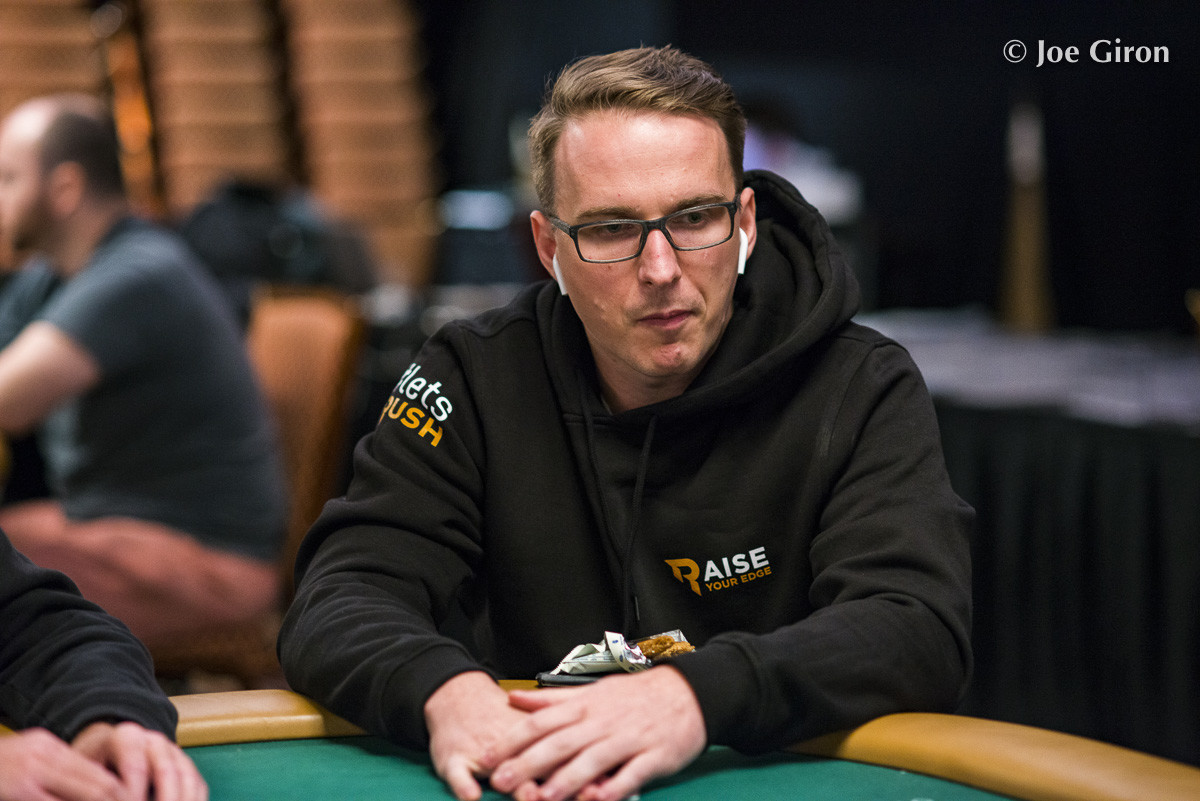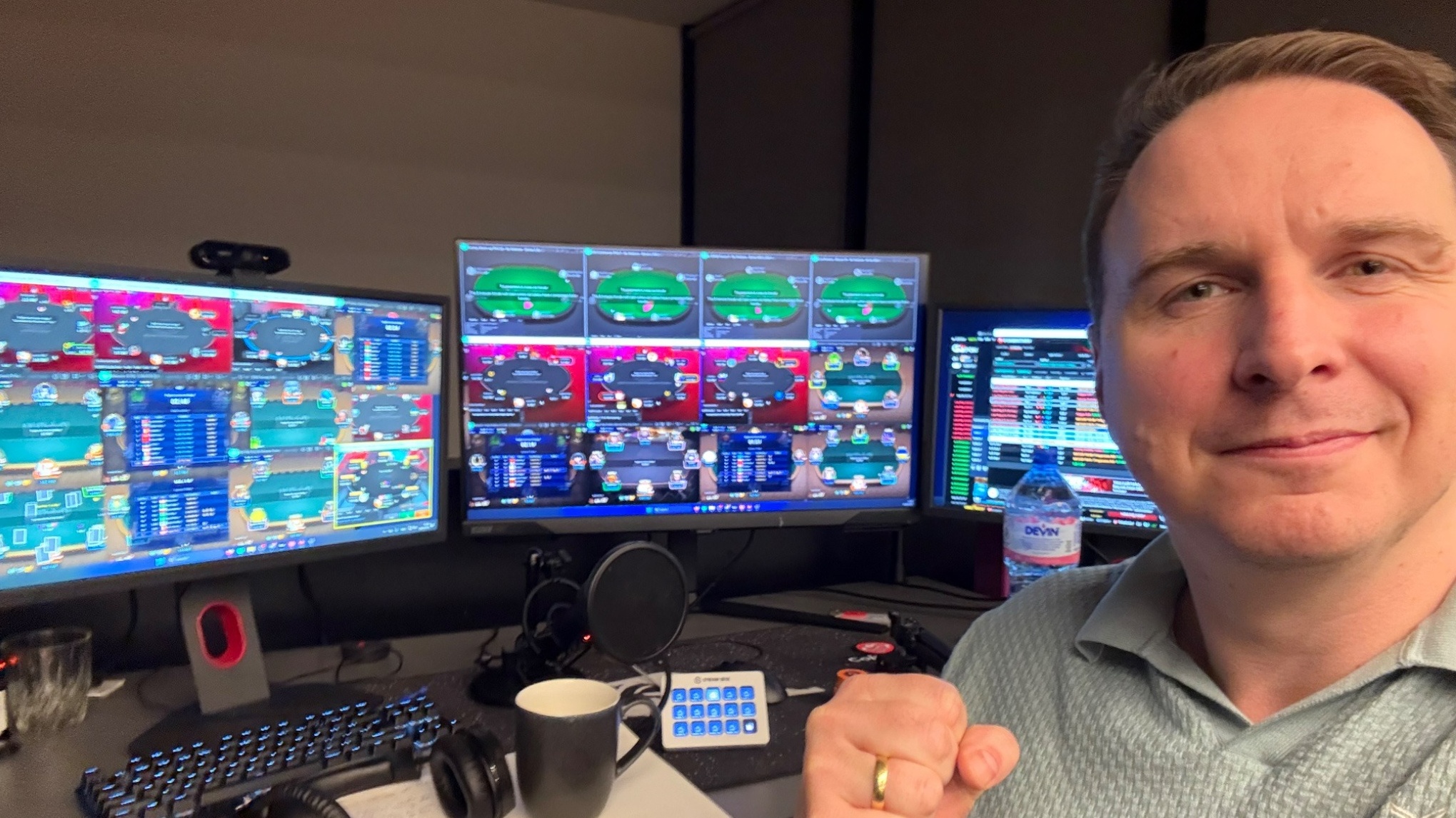Benjamin Rolle, known as BenCB, is at the pinnacle of online poker. Born on February 3, 1989, in Cottbus, Germany, he initially pursued football. His first job as a cashier didn't fulfill him, so he transferred his competitive skills to the poker table. He started on sit-and-go tournaments with a $1 buy-in, and after several busts, decided on a systematic study that eventually led him to the highest stakes.
He caught the spotlight in 2014 by winning a SCOOP event for around $200,000. In 2016, he triumphed in the WCOOP Super High Roller, with a buy-in of $102,000, defeating players like Phil Ivey and Fedor Holz at the final table. He concluded a heads-up deal for $1.17 million. Over time, he added more titles at SCOOP and WCOOP, winning the GGMasters and Super MILLION$ events, bringing his total online tournament earnings to over $35 million by 2025.
From Anonymity to Public Coaching
Rolle remained anonymous as “bencb789” for years, until 2019, when he revealed his identity through streams and strategic analyses. In 2014, he founded the training platform Raise Your Edge (RYE), which became a reference for advanced tournament stages. It offers the “Tournament Masterclass” with clear explanations of GTO concepts and exploitative approaches.
In 2024, Rolle reached the final table of the online Main Event World Series of Poker but finished quickly in eighth place with $651,921 as the short stack. He remembered this loss and took a second chance the following year, winning the WSOP Main Event for $3,900,707. This triumph meant more than money—it was a reward for systematic study and affirmed his status among online poker legends.
The Final Moment of winning $3.900.000
— bencb (@bencb789) September 23, 2025
Just speechless. pic.twitter.com/42bxrALlI8
Highlights from Reddit AMA
In early October 2025, Benjamin hosted a popular Ask Me Anything thread on Reddit's r/poker, where anyone could ask him anything. This AMA showed that even after a record online win, he remains open and willing to share his insights. His answers revealed that the foundation of his success lies in disciplined bankroll management, continuous study and data analysis, an emphasis on exploitative strategy, and balanced mental training.
Despite winning nearly four million dollars and becoming a WSOP star, he still enjoys the online grind and building a community through Raise Your Edge. Ben answered many questions on strategy, study, bankrolls, and poker's future, and we've selected the most interesting ones.
Will we ever see you at Triton events?
Very unlikely in the near future. I'm too busy with Raise Your Edge, and I enjoy the online grind much more. I have no desire for live Triton tournaments. Honestly, online is much more challenging, so I feel like I can improve faster there.
Why did you switch from sit-and-go to multitable tournaments?
When PokerStars abolished the SuperNova Elite system, sit-and-gos practically died out, forcing me to change formats. It turned out to be great luck. Imagine if Stars hadn't stopped SNE — I might still be grinding SNGs and Raise Your Edge might never have existed ;) It's not that I miss them; I just enjoy remembering them.

Is it hard to become a winning player?
In my opinion, it's still relatively easy to establish yourself at mid stakes. I'm speaking from my own experience and feedback from our students, who often say after succeeding, 'It was actually easier than I thought.' Of course, it's still challenging; don't get me wrong. But many people overcomplicate it — especially when they think they need to play strictly GTO.
Who do you think are the best technical players?
Mikita Badziakouski, Steven Chidwick, and Adrian Mateos. Players like Mateos always stand out — they play very solidly (which is still rare today), almost perfectly, and find crazy and great exploits against different player types. I admire when someone is very solid overall and can be a maniac in the good sense when necessary.
How do you build an exploitative strategy from database statistics?
First, it's important to understand threshold values. For example, you must know the “GTO” numbers for defense — from the big blind, button, or cutoff. You can check this in preflop range charts or a solver. Then, review your own data to see if you're defending too much or too little. And here's the crucial part. You have to look at the player pool to see if opponents are even 3-betting according to GTO. Maybe opponents 3-bet too little, so it's recommended to fold more often to 3-bets.
It's the only way to truly find out if you're adjusting correctly or need modification. Unfortunately, many coaches, especially “database” ones, don't know how to adjust strategies properly. They tell you to defend more against 3-bets, even though players at your stakes 3-bet too little.
What do you think are the biggest mistakes new players make?
Mistake number 1 will always be tilt, poor bankroll management, and underestimating variance. Technically, most players don't understand the importance of exploitative poker and are afraid to go to extremes — for example, playing the entire range or folding it all, or trying wild 3-bet/4-bet shoves.
My $3.900.000 Preparation.
— bencb (@bencb789) September 24, 2025
I use it as a reminder during a session when things aren't going my way. So I stay in charge. I have a clear plan.
It helps me to stay focused on the things that are in my control.
Since my handwriting looks like a 9-year-old, I'll type it here:
1...
Mentally, I feel pretty good, but I've invested a lot of time and effort off the tables into mindset work. I've attended numerous boot camps, invested in mentors and coaches, meditated extensively, and tried various techniques to stay focused. Most players don't do this and then wonder why they fall behind.
The foundation for success is, of course, bankroll management. Typically, you shouldn't invest more than 1% of your bankroll into a single tournament, ideally only 0.5%. Once you've amassed 200 buy-ins, you can move up. Progress gradually and don't be afraid to lower stakes again when necessary. Most people fail because their ego tells them not to lower the stakes until they go broke.
How can I improve my game and what should I focus on the most?
I would list four pillars:
- Proper preflop fundamentals
- Value betting
- Exploiting opponents
- Utilizing recreational players' tendencies
If I played live, I would try to get into a group of poker buddies and together analyze many hands. Live poker is much more about exploits. In bankroll management, you must be strict, and when you hit a big score, continue playing your regular stakes to see if you truly beat them or just got lucky.
How do you manage your time? How many hours a week do you spend playing poker?
I only play on Sundays and during big series 3-4 days a week. I combine studying with content creation for our members on Raise Your Edge, which takes about 15-20 hours a week. I then spend 10-15 hours at Acend Club (esports) and 5-10 hours on other projects. I work a lot, but I also have great flexibility. I can work 12 hours a day and then take 2-3 days off. And I love it. Yes, I still love it. I have no final goal. Money is just a byproduct. I don't think that way. I don't know if there's any end. I go where I can develop the most and, of course, earn well.

How many professional players do you think are staked?
No idea, but I'd estimate it at 50% - 60%.
Where are the softest online games currently?
Definitely CoinPoker.
Why did you become a CoinPoker ambassador?
Their vision is to massively invest in tournaments, offering decent guarantees and ongoing promotions. And, of course, their willingness to invest each month in events for our community. I like what they do and have enjoyed our collaboration so far.
Do you ever limp with AA/KK?
Rarely, and only in high ICM situations against super aggressive opponents.
Find the full Reddit AMA thread with Ben here




